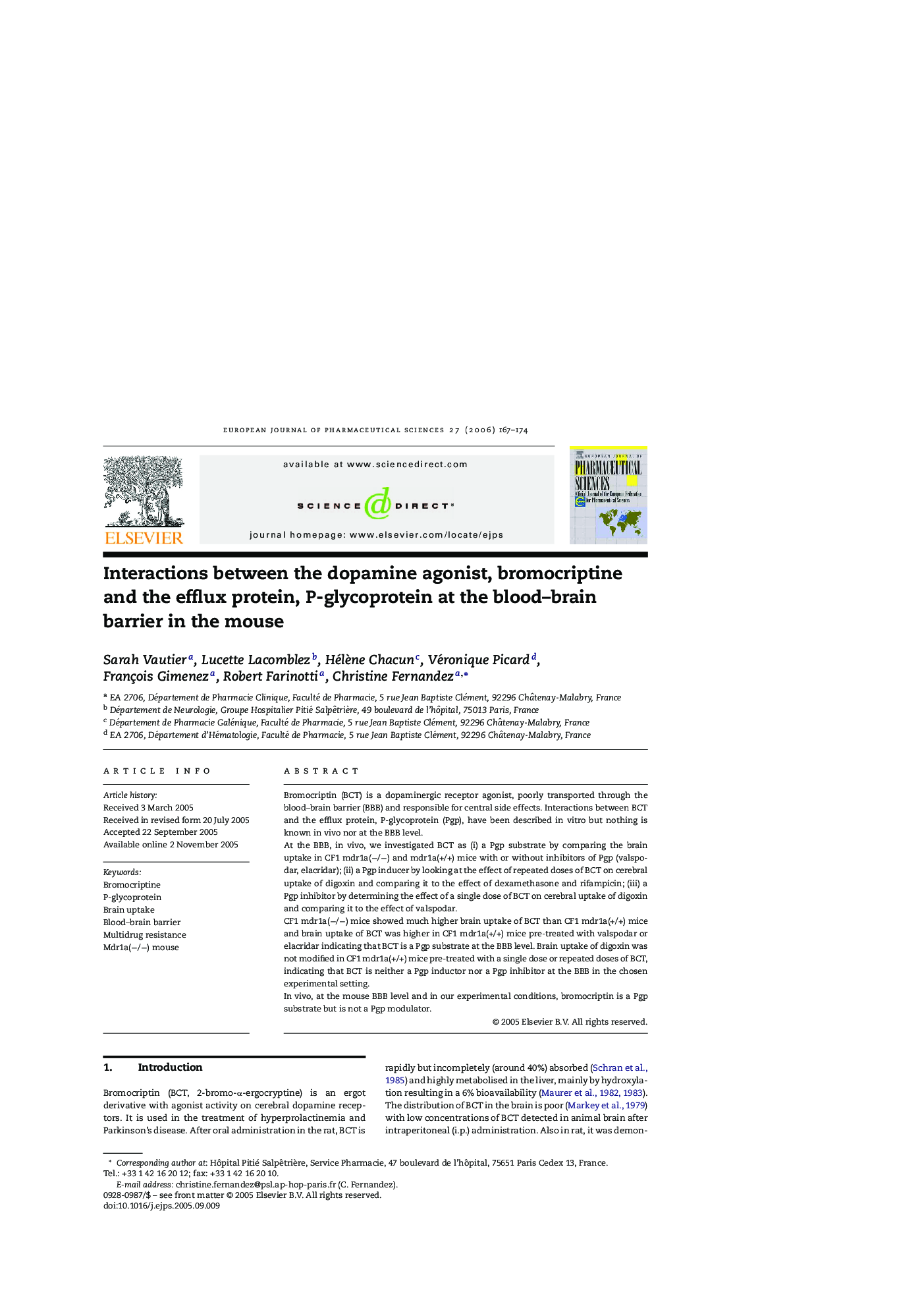| Article ID | Journal | Published Year | Pages | File Type |
|---|---|---|---|---|
| 2482530 | European Journal of Pharmaceutical Sciences | 2006 | 8 Pages |
Bromocriptin (BCT) is a dopaminergic receptor agonist, poorly transported through the blood–brain barrier (BBB) and responsible for central side effects. Interactions between BCT and the efflux protein, P-glycoprotein (Pgp), have been described in vitro but nothing is known in vivo nor at the BBB level.At the BBB, in vivo, we investigated BCT as (i) a Pgp substrate by comparing the brain uptake in CF1 mdr1a(−/−) and mdr1a(+/+) mice with or without inhibitors of Pgp (valspodar, elacridar); (ii) a Pgp inducer by looking at the effect of repeated doses of BCT on cerebral uptake of digoxin and comparing it to the effect of dexamethasone and rifampicin; (iii) a Pgp inhibitor by determining the effect of a single dose of BCT on cerebral uptake of digoxin and comparing it to the effect of valspodar.CF1 mdr1a(−/−) mice showed much higher brain uptake of BCT than CF1 mdr1a(+/+) mice and brain uptake of BCT was higher in CF1 mdr1a(+/+) mice pre-treated with valspodar or elacridar indicating that BCT is a Pgp substrate at the BBB level. Brain uptake of digoxin was not modified in CF1 mdr1a(+/+) mice pre-treated with a single dose or repeated doses of BCT, indicating that BCT is neither a Pgp inductor nor a Pgp inhibitor at the BBB in the chosen experimental setting.In vivo, at the mouse BBB level and in our experimental conditions, bromocriptin is a Pgp substrate but is not a Pgp modulator.
